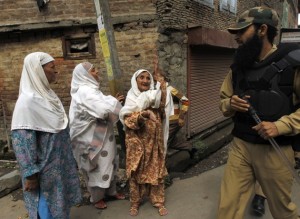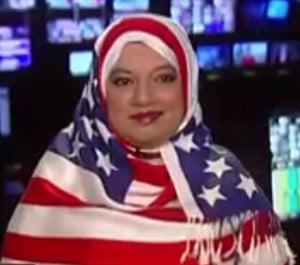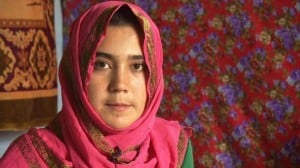The controversial anti-Islam video has caused protests and violence all over the globe. In Afghanistan, a female suicide car bomber attacked a bus in Kabul, killing 12 people. An armed group has claimed the attack and said it was to avenge the anti-Islam film. Following violent protests in Australia last weekend, which partly ended through the intervention of local Muslim mothers, Muslim women have called on their community to “cool off”.
In the African country of Malawi, sex workers have resorted to wearing Islamic-style clothing to attract potential customers, which worries the local Muslim community.
There is evidence that informal marriages are on the rise in Iraq. Informal marriage often has a negative impact on the lives of women and children involved.

According to a report by Human Rights Watch, discriminatory family laws in Bangladesh keep many girls and women trapped in abusive marriages, or drive them into poverty when the marriage falls apart.
A teenage girl in Aceh, Indonesia, has committed suicide, after being arrested and humiliated by the local Sharia police.
The Islamic Ministry of the island nation of the Maldives has called for a ban on mixed-gender dancing.
An Iranian woman who was told by a cleric that she should “cover up”, has physically attacked him, which resulted, according to the cleric, in a three day stay in hospital. These attacks by women are not rare in Iran; the cleric says he will not press charges.
The Filipino Catholic school that banned its female students to wear a hijab in the classroom has decided to lift this ban, after an appeal of a Muslim organization.
In the conservative city of Hebron/Khalil on the West Bank, an all-female list is running for the municipal elections. “By Participating, We Can” aims to appeal to the female electorate and hopes to improve the services and facilities available to women.
Among the Muslim Hui Chinese, there is a long tradition of female imams, leading their own, all-female, congregations in their own mosques, but there is the fear with the China’s rapid development, this tradition will disappear.
Thousands of Indonesian domestic workers, women and girls, are waiting in Syria to be repatriated to Indonesia. As many domestic workers are undocumented, it is not clear how many Indonesian women are still in the country, and this it makes it difficult to track them.
During an Islamic meeting in Australia, an 8 year old girl, Ruqaya, was used to convey a message that calls on Islamic youth to back the jihad movement.
Miss Jojo is a Rwandan popsinger, who recently released her second album Woman, and she speaks to the BBC about her conversion to Islam and her message as a singer.
For centuries the role of Mukhtar, or head of the clan in charge of different affairs, in the Gaza strip area was predominantly a male position, but nowadays an increasing number of women are taking up the job.
A non-native conservative form of Islam is threatening the emancipation and empowerment of Kazakh women, according to an article on Qantara.de.
Human Rights Watch calls for the freeing of the approx. 500 Afghan women and girls who are currently imprisoned for fleeing forced marriages and violence. Of the approx. 700 women currently serving sentences in Afghan jails, about a quarter are serving for murder. At the root of most murders committed by women is a forced marriage.
A younger generation of Muslims in Malaysia is trying to change the perspectives on the LGBT (Lesbian, Gay, Bisexual and Transgender) community in the country, using their faith. At the same time, the Malaysian government is holding seminars on how to spot gay children.
Somali activist Hawa Aden Mohamed has received the Nansen Refugee Award for her work educating Somali girls and women.
Za’atari refugee camp in Jordan has now a reproductive health clinic with a female doctor, as many female Syrian refugees, like many women in the region, do not feel at ease to see male doctors. With the number of refugees, of which many are women, dramatically increasing, the UNFPA is seeking support to increase health care services in the camp.












